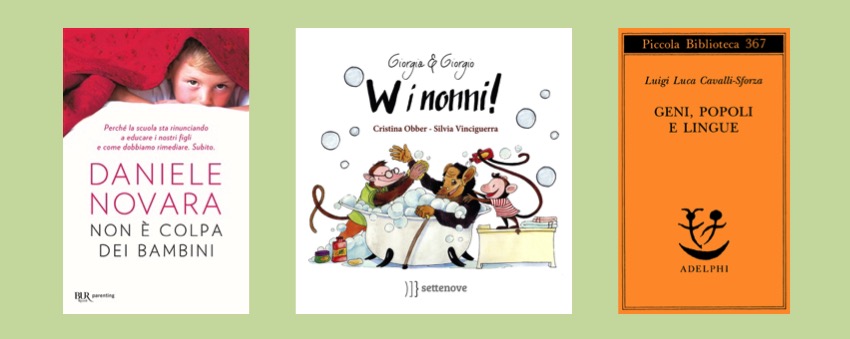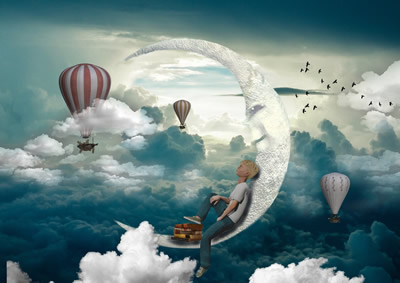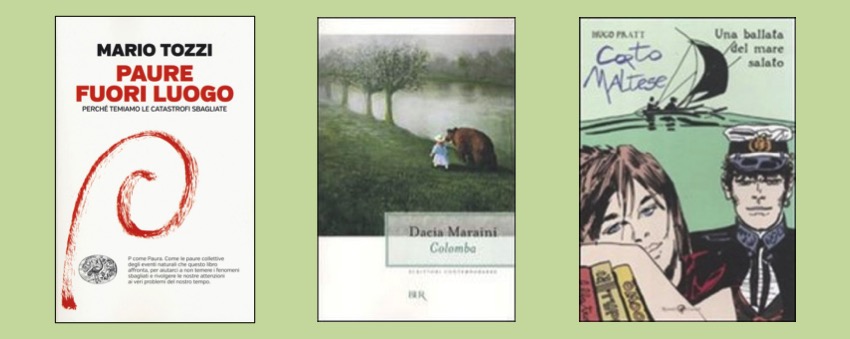
We start our column with three very different proposals, but all very close to our way of being Earth Gardeners.
The first volume, by Mario Tozzi, closely reflects our philosophy of eearthardening. The author tells us how and how much our relationship with the planet and its phenomenologies is the real cause of the catastrophes that strike us.
The second volume was chosen for two reasons: to start with Dacia Maraini, the greatest living Italian writer, and to pay homage to the woods of the Marsica, the theater of the novel, devastated by the fires of this terrible summer of fire and fires.
The third proposal concerns young people of all ages, people who love travel and adventure, people who love to know the places and their inhabitants without the mediation of the trade in fake emotions. Knowledge that enriches the soul and the ideas of those who practice it.
Mario Tozzi
Paure fuori luogo (Unfounded fears)
Perché temiamo le catastrofi sbagliate (Why we are afraid of wrong catastrophes)
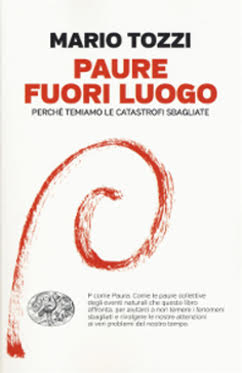
2017 Giulio Einaudi editore pag. 232
ISBN 9788806233396
2017 Giulio Einaudi editore
eBook page.232
ISBN 9788858425985
“We can reasonably save ourselves from unmotivated fears simply through basic scientific knowledge, the exercise of memory and assuming harmonic behaviors with the planet to avoid the catastrophic consequences of natural events. So we could perhaps turn our attentions to the real problems that the third millennium confronts the sapiens and which are largely determined exclusively by us humans and our uniqueness, unique compared to the other living, to live to accumulate. “
Mario Tozzi, by “trade” connoisseur of the geological events affecting the Mediterranean Basin, by popularizing passion and by virtue his own storyteller, in this book goes to the bottom of our collective fears, from floods to asteroids, from volcanic eruptions to epidemics, with special attention to earthquakes, dramatically current, showing us how we are men who transform into tragedy the natural events of the territories we inhabit and that we should know for millennia.
The author makes a lucid and exact analysis of fear, showing how ignorance is the first reason we are afraid when we should not and we do not have when we should have it.
Only accurate and timely information could save us from unmotivated fears and push us to pay attention to the real problems of today: climate change, end of resources, consumption of the territory, etc.
The most original and reliable thesis that Mario Tozzi expresses, after those of the Flood and the island of Atlas, of which he had written in previous volumes, is the one for which catastrophes do not only frighten us, but in the end attract us, because life on Earth, humanity and all that now makes up our landscapes are born of catastrophic events.
The only “defect” of the volume is that the pleasantness of writing can distract us from the real and sometimes dramatic issues that it speaks of. We therefore recommend that you pay more attention to the expert Tozzi than to the Tozzi affabulator!
Dacia Maraini
Colomba
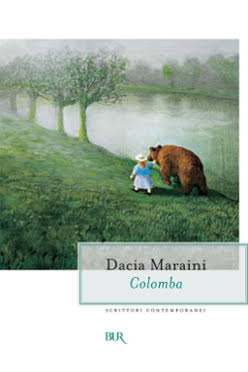
pp. 373, Brossura
EAN: 9788817016766
Rizzoli libri
EPUB con DRM
1,93 MB
EAN: 978885861941
“When you reach the top of Mount Triollo, it stops to catch your breath. The sky has meanwhile opened up. The panorama spreads around her like a great theater: in front of it, the painted canvas of Mount Marsicano, with its broad and mysterious backs, silver white on the blue of the horizon. On the left, the fifth of Mount Palombo, which partially hides the peak of Pietra Gentile. Next to it, on the right, the mountain of the Vitelle, where the ski facility takes the boys from the gaudy suits that run up and down the slopes. Behind the close-up of wooded peaks, other wings that give a glimpse of the shining points of the Monte della Gatta, the peak of the Rocca, the Monte Pietroso and the most undefined mountain of Mount Tranquillo. A sparkling ring surrounds a stage with a white floor on which the actors will now move. Who?”
“A character knocked on the door of the short-haired woman. He knocked his knuckles timidly, entered without making a sound. “
The ‘character’ enters the writer’s head starting a novel of Pirandellian flavor to talk about a very poor family emigrated from the South in the early twentieth century, a soldier who died on the Karst during the First World War, a clandestine son and a difficult child , of a Pietr’n father and of a Pietr’n son who emigrates to Australia for hatred of fascism. But now we are in Abruzzo, in 2002. Pietr’n’s daughter has become a grandmother and dedicates her days in search of Colomba, the missing granddaughter. Every morning Zaira sifts through the woods of the Abruzzi mountains while looking for a solution in the bewitching of memories. Thus, in that lost niece ends up looking for all the missing persons in the past. With the help of the ‘short-haired woman’, a writer who lives in the mountains of Abruzzo, Zaira re-enacts the many threads of memory.
Epic and choral novel in which the voices of two women alternate contending for the scene, then overlap and one slips on the other. Who weaves this story of stories a century long? And where is Colomba, dissolved in the mysteries of the forest? Perhaps a passing hunter is right: “A single woman should not go for woods”.
Hugo Pratt
Corto Maltese Una ballata del mare salato (Corto Maltese A ballad of the salty sea)
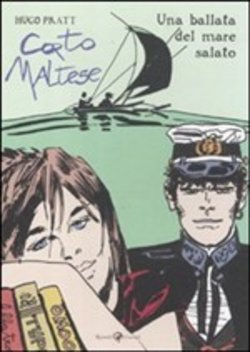
2012 Rizzoli Editore
pp 196 Hardcover
EAN:978881705525
“I am the Pacific Ocean and I am the biggest of them all. They’ve been calling me that for a long time, but it’s not true that I’m always calm. Sometimes I dry up and then I give a brush to everyone and everything. Today, for example, I have just calmed down since the last rage. Yesterday I must have dusted away three or four islands and as many walnut shells that men call ships … “
It is the 1st of November 1913, the day of all the saints, when a catamaran saves a man tied to a raft from the waves. The castaway, reduced in this state by the mutiny of his crew, is Corto Maltese; the savior, incredible to say, is the crazy pirate Rasputin. And the Ocean has brought on board the young Cain and Pandora Groovesnore that the pirates will involve in the most unforgettable of sea adventures.
The story, a comic strip made of German gunboats, mysterious islands and cannibal populations, takes place at the dawn of the First World War, off the Melanesian waters in the South Pacific.
In reality it is 1967, when from the pen of Hugo Pratt Corto Maltese leaves for his adventures that will see him plowing the seas of the whole world. Short will travel a lot, if the Ballad is set in Melanesia, in the islands north of Australia, the other events will see it in French Guiana, above Brazil, then go down to Bahia and then and then …
‘A ballad of the salty sea’ will remain a timeless classic of the literature designed because it represents those odyssees of which everyone would like to be the protagonist.


